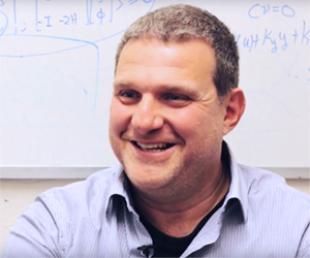Location:
Sanderson Building, Classroom 3
Date:
Integrated systems approach for the sustainable bioproduction of fuels and added-value chemicals
Due to the constantly increasing global energy demand, the need to produce not only sustainable alternative fuels but also added-value chemicals and energy from renewable sources is becoming more crucial. In this sense the emergence of bio-based technologies has become an attractive and potentially environmentally friendly option. Especially the concept of integrated biorefineries, where biomass is converted to fuels, energy and chemicals, thus appropriately valorizing all side-streams is of particular importance.
In recent years we have developed the integrated biorefinery paradigm through a combination of experimental and computational studies for the co-production of various-biofuels, including biodiesel, and biobutanol from microalgal strains and the bio-production of added-value chemicals, such as succinic acid, bioplastics, and microbial oil from biorefinery glycerol (the main byproduct of biodiesel production). Production at a variety of scales is investigated, starting from laboratory flasks all the way to pilot-scale bioreactors and to open raceway ponds.
An efficient approach towards improving the performance of the various bioprocesses involved, including yields and productivities, is the development of fundamental, robust, predictive, dynamic computer-based process models that are able to describe the main underlying phenomena. Such process models should include all relevant process parameters (agitation, liquid and gas flow rates) as well as environmental conditions, extracellular nutrient availability, multiple substrates and scaling conditions. We have constructed a number of such experimentally validated models for bioprocess design optimization, scale-up and process mode selection purposes. These models, coupled with holistic, multi-scale, plant-wide simulators can offer valuable insights into the economics and sustainability of complete integrated biorefineries from biomass to products.
Going one step further, we develop a number of new methodologies for the underlying metabolic processes, taking into account intracellular conditions, to understand the cellular metabolism and to maximize the formation of the desired products using systems biology approaches. The new methodologies allow the computation of intracellular fluxes, using efficient sampling techniques, the evaluation of the most beneficial metabolic pathways that enhance bioproduction of desired products, and the assessment of intracellular crowding effects on reaction rates. These methodologies can provide detailed information on the optimal environmental conditions as well as guidelines for potential genetic manipulation of the microorganisms involved, in order to maximize production rates and enhance sustainability of the bioprocesses.
Bio
Constantinos (Kostas) Theodoropoulos is Professor of Chemical and Biochemical Systems Engineering at the School of Chemical Engineering and analytical Science, University of Manchester. He received his BSc in Mathematics from the Aristotle University of Thessaloniki in Greece and his MSc and PhD in Chemical Engineering from the State university of New York at Buffalo, USA. He then worked as a post-doctoral fellow in the Department of Chemical Engineering at Princeton University for 2 years before joining the University of Manchester (then UMIST) as a Lecturer. He has over 120 publications in high impact scientific journals and he has given a number of invited seminars, keynote and plenary lectures around the world and has served as member of editorial boards and of international scientific committees for a number of International Conferences and Workshops. He is the recipient of the 2011 IChemE Innovation and Excellence Award for Bioprocessing and of the 2012 ExxonMobil Excellence in Teaching Award.
His research group develops integrated experimental and modeling methodologies focusing on complex chemical and biochemical systems and processes, with a particular interest in integrated biorefineries for the co-production of fuels and chemicals. The development of novel computational methods and model reduction techniques for bridging the gap between different time- and length-scales in order to enhance the simulation, design, optimisation and control capabilities for complex large-scale reaction-transport processes and for microscopic systems is another important research direction providing a suite of enabling technologies to deal with the above systems of interest.



